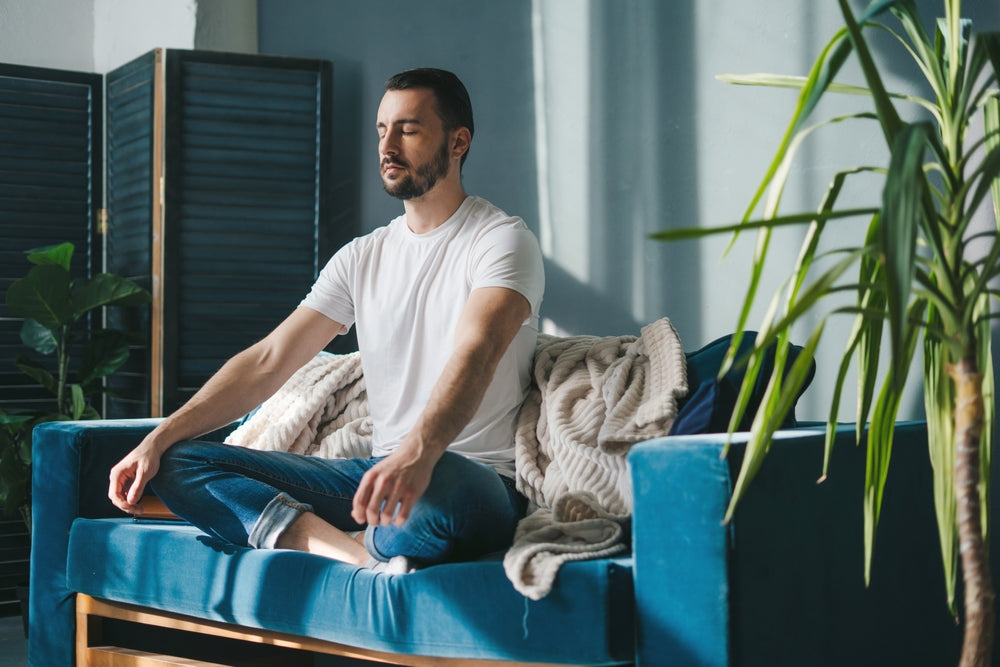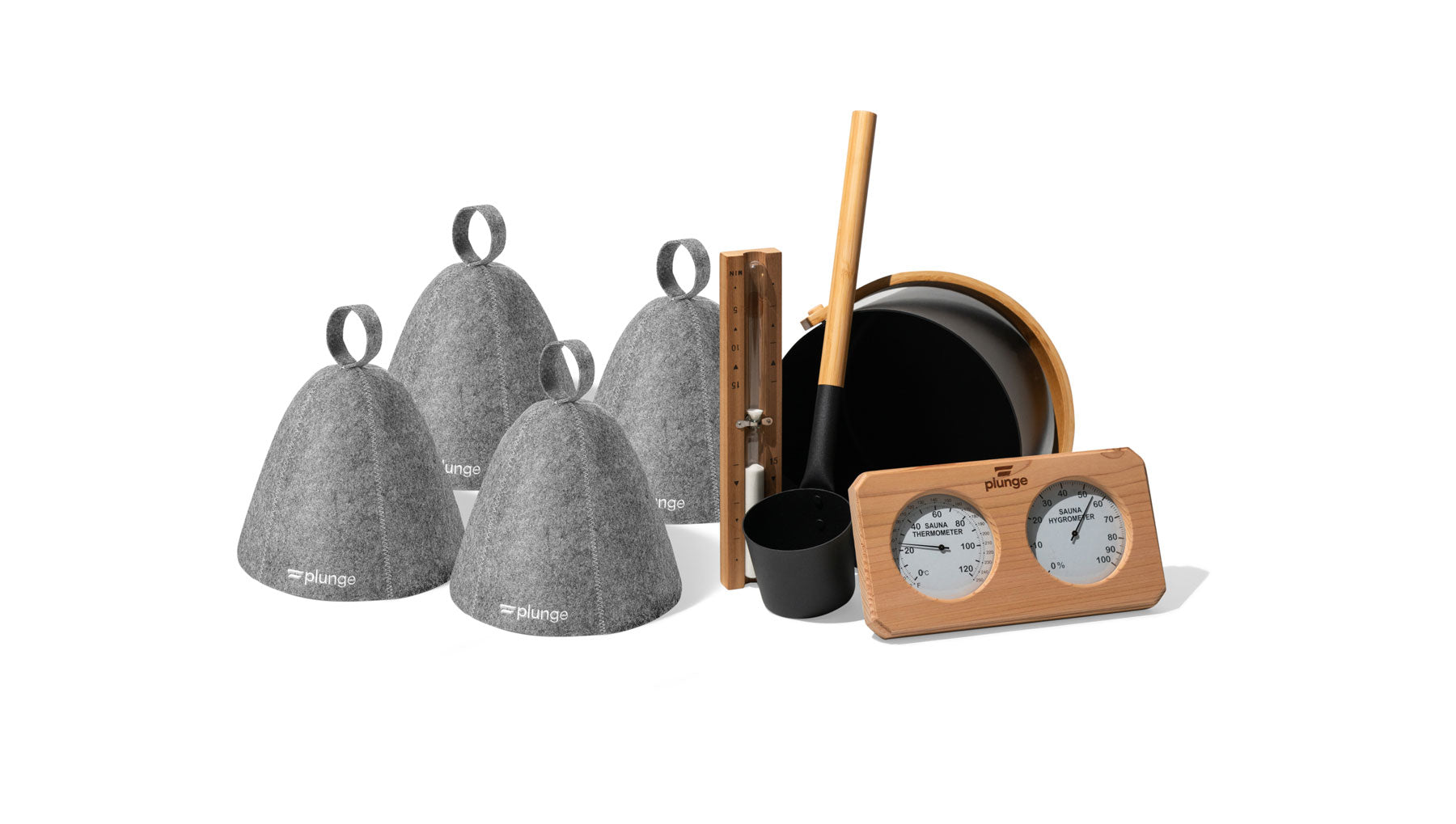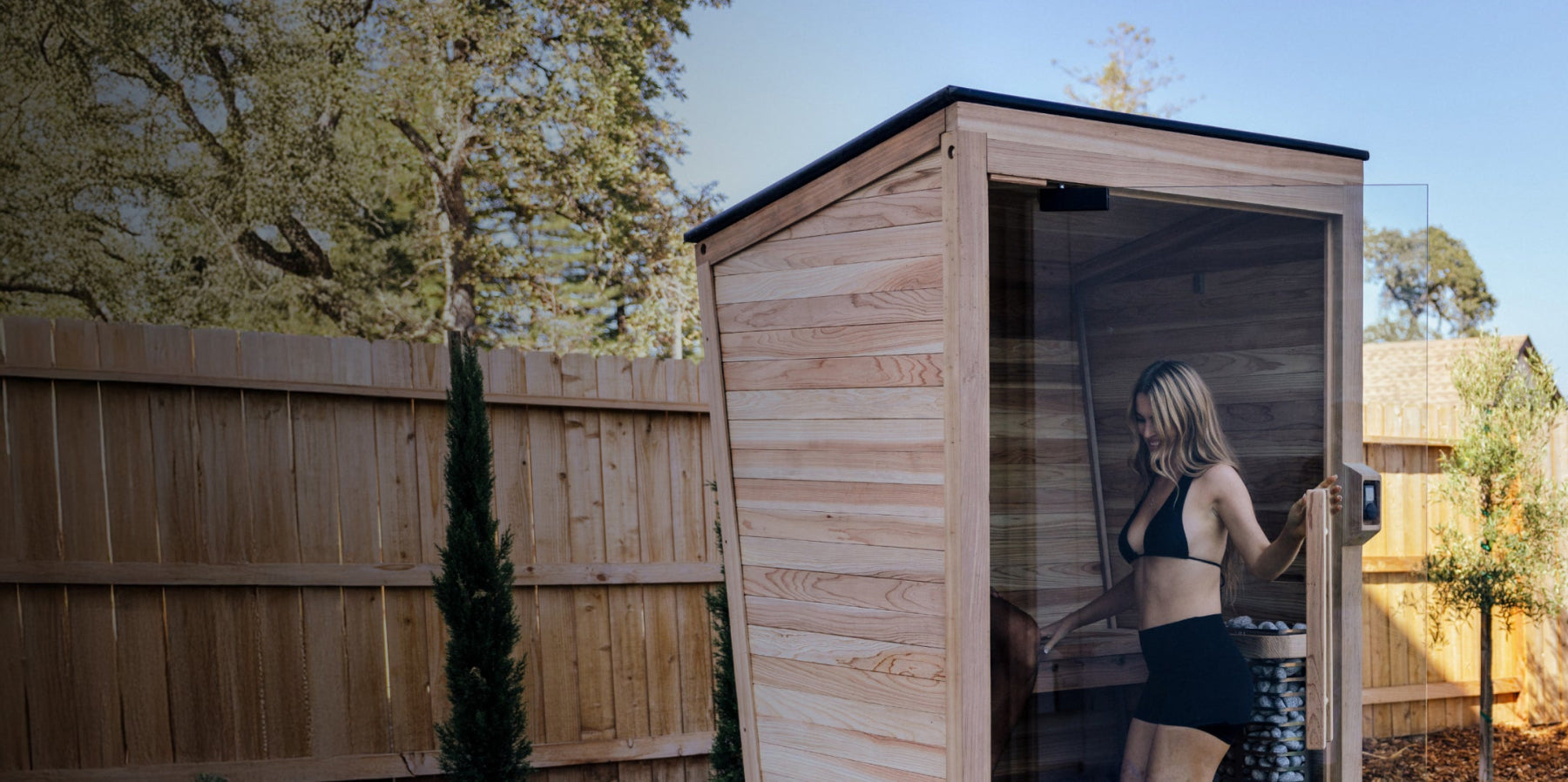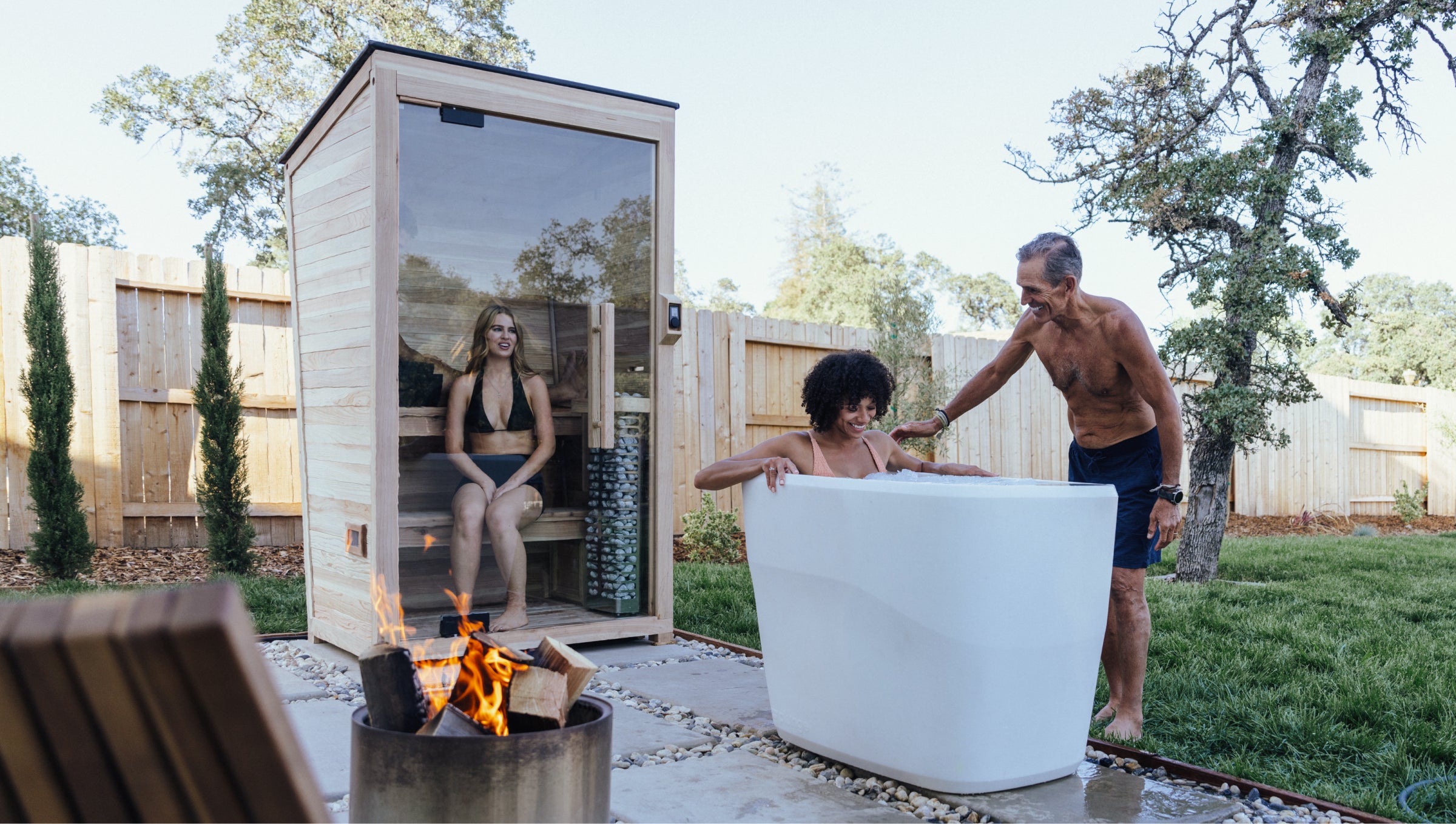
Meditation for Beginners: How to Start, Benefits, & More
In the fast-paced world we live in, finding moments of peace can be challenging. Amidst this hustle and bustle, meditation can be a powerful way to find calm and clarity. This guide will introduce you to the art and science of meditation, exploring its history, benefits, and methods (as well as some tips to get started). Whether you're looking to reduce stress, increase self-awareness, or just find a moment of tranquility, meditation can help you on your journey toward greater well-being.
What is Meditation?
Starting with the basics, meditation is a mental exercise that focuses attention and awareness on the present moment, typically through breathing or a specific object of focus. Contrary to popular belief, meditation is not about emptying your mind — it’s actually about observing your thoughts without judgment. This helps cultivate deep relaxation and inner peace, blending ancient traditions with modern understanding.
History of Meditation
This practice dates back thousands of years and spans many different cultures and religions. Early records of meditation are found in ancient Hindu scriptures from India (like the Vedas), dating back to around 1,500 BCE. Buddhism, which originated in the 6th century BCE, has also heavily influenced meditation rituals, emphasizing mindfulness and the pursuit of enlightenment.
More recently (in the 20th century), meditation began its journey westward. Pioneers like Maharishi Mahesh Yogi introduced Transcendental Meditation to the West in the 1950s, sparking a surge of interest among both the general public and scientists. Over time, meditation has evolved beyond its religious origins, becoming a widely accepted practice for both mental and physical well-being in the modern world.
Benefits of Meditation
So what are these ways that meditation can improve well-being? Research has shown that regular meditation helps with:
Stress Reduction
One of the most well-known benefits of meditation is its calming effects. During meditation, the parasympathetic nervous system is engaged — lowering heart rate, reducing blood pressure, and decreasing the production of stress hormones like cortisol. By doing this, meditation can alleviate some physical and emotional symptoms of stress and anxiety. Further, techniques like Mindfulness Meditation (more on this below) encourage you to focus on the present moment and let go of worries about the past or future, which can also help reduce overall stress levels.
Enhanced Concentration
By training the brain to focus on a single point of reference, such as the breath or a mantra, meditation may improve concentration. This practice also strengthens the prefrontal cortex, which is the area of the brain responsible for attention, executive function, and decision-making. One study found that 13-minute daily guided meditation improved memory and attention after just 8 weeks. This can be beneficial for students, professionals, or anyone simply looking to improve cognitive function. As research has shown, meditation can also enhance attention span, which may translate to improved performance at work, school, and in your personal life.
Emotional Health
Emotions are a natural part of the human experience, but if left unregulated, they can lead to turmoil. Meditating develops a greater awareness of your emotions without judgment, helping you recognize negative thought patterns and develop a more balanced perspective. Techniques like Loving-Kindness Meditation (discussed below) promote feelings of compassion and love for oneself and others, resulting in improved emotional intelligence and well-being. Studies have also shown a reduction in symptoms of depression. Developing awareness of these emotions can lead to greater emotional resilience and composure, as well as improved relationships.
Better Sleep
Struggling with insomnia or poor sleep? Meditation can be a valuable tool to assist. Meditation has been shown to improve sleep quality by relaxing your body and reducing stress, which are frequent barriers to restful sleep. Specific practices like Guided Meditation or Body Scan Meditation help calm the mind and release physical tension, preparing the body for sleep. Several studies around mindfulness and sleep have shown that meditation can help individuals fall asleep faster and stay asleep longer.
If you’ve tried meditation and haven’t gotten the results you’re looking for, try a natural sleep aid to complement your nightly routine.
Pain Management
Surprisingly, meditation can also influence how we perceive and manage chronic pain. Mindfulness encourages individuals to observe their pain without emotional reactivity, which reduces the intensity of pain experienced. This shift in perception is linked to changes in brain areas associated with pain processing, such as the anterior cingulate cortex and the insula. A 2014 study of over 3,500 people concluded that meditation was associated with decreased pain, with research in 2017 backing this up. More research from the Journal of Neuroscience found that mindfulness meditation reduced pain intensity and unpleasantness ratings in participants exposed to painful stimuli.
Increased Self-Awareness
As we’ve mentioned when it comes to stress and emotional health, meditation enhances self-awareness by emphasizing a non-judgmental observation of thoughts and feelings. This helps you recognize automatic thought patterns and gain insight into your own behaviors and motivations. This increased self-awareness can lead to personal growth, more informed decision-making, and a stronger sense of identity.
Releasing Physical Tension
Chronic stress can sometimes manifest as physical tension in the body. By achieving relaxation and body awareness, meditation releases some of this muscle tension. For example, Body Scan Meditation systematically focuses on different parts of the body and consciously relaxes them. This helps not only identify areas of tension but also to alleviate them. Physical relaxation and reduced tension can lead to improved posture, less muscle strain, and even soothed tension headaches.
How to Start Meditating: Basics
Starting your meditation journey doesn't require any special equipment or training — here are some basic steps to get you started:
- Find a calm space: Choose a quiet and comfortable place where you won't be disturbed.
- Comfortable posture: Sit in a relaxed position (whether on a chair, in bed, or on the floor) and keep your back straight but not rigid.
- Close your eyes: Gently close your eyes to minimize distractions.
- Focus on your breath: Pay attention to your breathing — notice the sensation of the breath as it enters and leaves your nostrils or the rise and fall of your chest.
- Observe your thoughts: As you meditate, thoughts will inevitably arise. Instead of engaging with them, simply observe them and let them pass like clouds in the sky.
- Start small: Begin with short sessions (5-10 minutes) and gradually increase the duration as you become more comfortable.
- Regular practice: Now keep it up! Consistent meditation, even for short durations, can yield significant benefits.
Meditation Techniques for Beginners
There are many meditation techniques, each offering unique benefits. Some of the most common methods include:
- Guided Meditation: Listening to a guide who leads you through a meditation session, often focusing on relaxation or visualization.
- Mindfulness Meditation: Focusing on being present in the moment and observing thoughts and sensations without judgment.
- Transcendental Meditation: Using a mantra (specific word or phrase) repeated silently to help focus the mind.
- Loving-Kindness Meditation: Cultivating compassion and love for oneself and others by silently repeating phrases of goodwill.
- Body Scan Meditation: Focusing attention on different parts of the body, promoting relaxation and awareness.
- Visualization Meditation: Imagining an image of a peaceful place or situation to focus on and relax the body.
Tips for Different Meditation Lengths
Meditation doesn't have to be a lengthy commitment in your day. Here are some tips for incorporating bite-sized meditations into your life:
1-Minute Meditation
Even with a busy schedule, you can add a quick meditation to your day. Here's how to meditate in just one minute:
- Find a Quiet Spot: Even if it's just a corner of your office.
- Sit Comfortably: Take a comfortable position.
- Focus on Your Breath: Take slow, deep breaths.
- Let Go of Thoughts: Briefly observe your thoughts and then let them go.
- Return to Your Breath: Focus on your breathing until the minute is up.
5-Minute Meditation
For a slightly longer session, try this five-minute meditation:
- Find a Comfortable Position: Sit or lie down comfortably.
- Set a Timer: Set a timer for five minutes.
- Breathe Deeply: Take a few deep breaths to relax.
- Focus on Your Breath: Pay attention to the rhythm of your breathing.
- Observe and Release: Notice any thoughts or sensations and let them pass without judgment.
15-minute (or Longer) Meditation
For a more extended meditation practice, follow these steps:
- Create a Peaceful Environment: Find a serene space.
- Sit Comfortably: Maintain a relaxed and upright posture.
- Deep Breathing: Begin with deep, calming breaths.
- Breath Focus: Keep your focus on your breathing.
- Mindfulness: Observe your thoughts and sensations without judgment.
- Body Awareness: Gradually scan your body for tension and release it.
- Gently Return: Bring your focus back to your breath whenever it wanders.
Meditation FAQs
Is it Good to Use Meditation to Start the Day?
Yes, starting your morning with meditation can set a calm and focused tone for the rest of the day. It can help reduce morning stress and improve overall productivity for your day ahead.
When is the Best Time to Meditate?
The best time to meditate is whenever you can fit it into your schedule. Some people prefer morning meditation for a clear head to start the day, while others find evening meditation useful for relaxation before sleep.
How Can I Meditate in Bed?
Meditating in bed can be a relaxing way to wind down in the evening. Lie on your back, close your eyes, and focus on your breath. Use a guided meditation or body scan technique to help relax your body and mind.
Note: Be aware that you might fall asleep, which is fine if relaxation is your goal, but isn’t ideal for mindfulness practice.
How Does Meditation Reduce Stress?
Meditation reduces stress by promoting relaxation and reducing the production of stress hormones. It activates the body's relaxation response, lowers heart rate, and decreases anxiety, resulting in a calmer mind. It also helps break the cycle of rumination that often fuels stress.
What is Transcendental Meditation?
Transcendental Meditation is a technique that involves silently repeating a mantra for 20 minutes, twice per day. Transcendental Meditation’s goal is to transcend (hence the name) ordinary thought and reach a state of deep rest and relaxation.
How Long Should You Meditate?
The duration of meditation depends on personal preference and experience. Beginners might start with 5-10 minutes daily, gradually increasing to 20-30 minutes as they become more comfortable. Remember, consistency and quality of meditation are more important than duration.
Prioritize Self-Care
Meditation is a journey that offers numerous benefits for the mind and body. By incorporating it into your daily routine, you can achieve greater peace, focus, and self-care.
For those looking to get even greater benefits from similar holistic practices, a more comprehensive wellness routine might be what you need. For example, temperature therapy has been shown to amplify some of the same benefits as meditation, like resilience, stress reduction, and pain management. A cold plunge tub invigorates the body, reduces inflammation, and enhances mental clarity, while sauna sessions relax muscles, improve circulation, and release physical tension. Combining these practices with meditation amplifies their individual benefits for profound relaxation, improved physical recovery, and deeper mindfulness.
Our cold plunges and saunas are designed to complement your meditation routine, creating a harmonious balance of mind and body. Create your personalized wellness sanctuary in the comfort of your home for greater well-being. Learn more about our financing programs and HSA/FSA eligibility here.
Medical Disclaimer: The information contained in this post is for informational and educational purposes only. It is not intended to provide medical advice or to take the place of such advice or treatment from a personal physician. All readers/viewers of this content are advised to consult their doctors or qualified health professionals regarding specific health questions or before embarking on any new health or wellness routine, including saunas and cold plunging. Neither the author(s) nor the publisher of this content take responsibility for possible health consequences of any person or persons reading or following the information in this educational content. All viewers of this content, especially those taking prescription or over-the-counter medications, should consult their physicians before beginning any cold plunging routine or other health or wellness program.
























